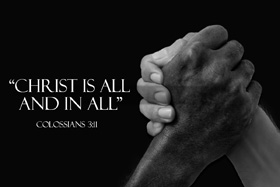
Photo courtesy of the Rev. Josephine Whitely-Fields.
Black clergywomen are pioneers of The United Methodist Church who have answered the call to make disciples for the transformation of the world.
They have had a positive impact on churches and communities, with spiritual, numerical and financial growth occurring under their leadership.
Their life stories can be valuable resources to provide insight for The United Methodist Church as we revamp to dismantle racism. Secondly, their stories can inspire and equip other women of color considering the call to ministry. In addition, their journeys can inspire and equip all Christians in their quest to be more like Jesus through prayer, love, forgiveness, perseverance and hard work.
Commentaries
The “isms” of the church present themselves in many forms, including verbal abuse, false accusations, physical violence, abuse by senior pastors, sexual harassment, sexual abuse, rare appointments to higher salaried churches, reducing the salary when a Black clergywoman is appointed, lack of denominational support in the face of racism and sexism, denial of racism and sexism on the part of the congregation with concurrent blame of the Black clergywoman as the source of any and all problems, and marginalizing the Black clergywomen so their voices will not be heard.
Systemic racism, sexism and economic discrimination are also demonstrated by the location, financial ability and vitality of the churches where Black clergywomen are assigned. Many of the cross-racial appointments are in rural areas or small towns where few or no Black people reside. The location is a cultural shock for the Black clergywoman, and relating to a Black clergywoman is a cultural shock for the congregation. The Black clergywoman is assigned with no attempt to bridge the cultural or racial divide, as she is literally dumped on the congregation.
In addition, there is no intentionality in providing a support system for the Black clergywoman. Further, the judicatory personnel often do not provide any support. When conflict arises, frequently, the Black clergywoman becomes the scapegoat, and is treated as the problem, rather than addressing the racism and sexism that exist.
Churches where Black clergywomen are appointed are often unable to financially support a full-time pastor. So the Black clergywoman is required to live off part-time pay and may have to seek other employment to even live at poverty level. Economic discrimination against clergywomen is systemic in the church, and the struggle is intensified for Black women when coupled with racial prejudice.
Concurrent to inability to pay a full-time pastor, many of the churches where Black clergywomen are assigned are churches in a downward spiral of ministry, including numerical, financial and spiritual deficits, and/or in need of life support. Unless God works a miracle, the church will close or continue to spiral down. Building up a congregation that is in this condition becomes a monumental if not impossible task. Nevertheless, Black clergywomen are told the church is a “great opportunity,” which is code for “disaster.”
We Are God's Family: Personal Encounters with Racism

The legislation of ordaining women has been instituted and serves as a backdrop for further advancement. However, further advances require a multifaceted approach:
● Direct conversations with Black clergywomen, and/or reading their stories regarding their experiences, in order to gain a better understanding of them as individuals and the struggles they face.
● Implementation of systems that prevent retaliation when the Black clergywomen highlight racism, sexism or economic discrimination.
● Prosecution of sexual predators and/or sexual abusers.
● Training of clergy to recognize and correct their own racist and sexist practices.
● Training materials, guidelines, benchmarks and accountability tools for conference teams to assist churches in dismantling racism, sexism and economic discrimination.
● Development of a conference team for dismantling racism, sexism and economic discrimination and to serve as a support system and advocate for the Black clergywoman.
● Tracking of Black clergywomen’s salaries compared to those of other clergy in their ordination class and/or conference to assist in providing greater equity of salaries.
● Holding bishops accountable for appointing Black clergywomen to churches with lower salaries.
● Providing cultural sensitivity training for the Black clergywoman and the congregation she is to serve.
Lest we forget, The United Methodist Church has made significant advances toward dismantling sexism, racism and economic discrimination, including: (1) The election of the first African American bishop of any major domination in the world. (2) The appointment of Black clergywomen in cross-cultural appointments. (3) The appointment of Black clergywomen as district superintendents. (4) The hiring of Black clergywomen as seminary faculty and/or administrators. (5) The hiring of Black clergywomen as conference staff. (6) The hiring of Black clergywomen at general boards and agencies. (7) The appointment of Black clergywomen as senior pastors with multi-staff settings.
Many of the Black clergywomen who have made advances in The United Methodist Church are pioneers. However, much work remains to be done.
Whitely-Fields is the author of “Pioneer Black Clergywomen: Stories of Black Clergywomen of The United Methodist Church 1974-2016,” published by WestBow Press. She is a retired pastor, having led churches in Virginia, Ohio and Pennsylvania; a former director of missions outreach in the Western Pennsylvania Conference; the founder and CEO of four nonprofit corporations; and a former associate dean and adjunct faculty member at United Theological Seminary. Proceeds from the sale of her book will benefit scholarships for Black clergywomen. She also holds a doctorate in formative spirituality as well as three master’s degrees and an equivalent doctorate of dental medicine.
News contact: Tim Tanton or Joey Butler at (615) 742-5470 or [email protected]. To read more United Methodist news, subscribe to the free Daily or Weekly Digests.
Like what you're reading? Support the ministry of UM News! Your support ensures the latest denominational news, dynamic stories and informative articles will continue to connect our global community. Make a tax-deductible donation at ResourceUMC.org/GiveUMCom.



